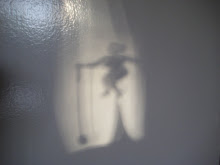 Mary Lutyens, 'To be Young' Corgi edition 1989. First published 1959
Mary Lutyens, 'To be Young' Corgi edition 1989. First published 1959Agatha Christie: an Autobiography'. Berkley Books 1996. First published 1977
Catherine Gildiner, 'Too Close To the Falls, A Memoir' Flamingo 2003
Elaine Dundy, 'The Dud Avocado'. New York Review Books, New York 2007. First published 1958
Winifred Watson, 'Miss Pettigrew Lives For a Day' Persephone Books, London 2008. First published in 1938
Penelope Mortimer, 'About Time, An Aspect of Autobiography'. Penguin Books Ltd 1979
Have had a feast of biographies. The tamed chaos of life in hindsight is so endearing.
In this bunch the childhood memories of parents and the experience of motherhood; with nurses, governesses and boarding schools of particular interest. So different to the current divide of working/non working.
To know the poor education that women had and survived in the past, helps to put into perspective the school quest and waiting lists. Agatha Christie had almost no formal schooling and was considered slow witted in her family. Very funny description of her Steiner school by Penelope:
I wore my own clothes for a few days, while they diagnosed my temperament. The prognosis was red, for choleric. So I wore red smocks in the summer, and red jersies in the winter.. (p72)
Stranger still was the childhood of Mary Lutyens, the daughter of the famous architect father and a fervent theosophic mother; a childhood of pilgrimages, and waiting and practicing to be enlightened.
Domesticity- another area of interest. Agatha, Sally Jay (Dud Avocado), Penelope and Delysia (Miss Pettigrew) avoid it and gain so much time. In the Dud Avocado, Sally Jay is outraged in being expected to cook/entertain:
I tried to remember one minute that whole weekend when Marion and I weren't either feeding people, or clearing up from doing it, or preparing to do it again. And presumably she never stopped doing it. But I could not see why just because she did, I should. I mean, here was I practically fresh out of the egg, everything was so new to me, and here was everybody telling me to stop drifting, and start living in this world; telling me to start cooking, and sewing, and cleaning, and I don't know what. Taking care of my grandchildren. (p144)
Agatha can only cook souffles, Penelope can only cook toast and learns to make scrambled eggs.
The light reading - Dud Avocado and Miss Pettigrew was entertaining. Happy endings in both. I'm not giving anything away. Such different social norms before and after WW2.
Penelope Mortimer's autobiography is so quickly readable, such grace in descriptions, toughness in opinions and a very steady gaze at her life. I'm reading the second part of the autobiography now and am loving the 6 children of 4 fathers, and 2 husbands. Like in all good sagas a family tree in included to help the reader along.
A long biography, like Agatha's, is interesting because of the knowledge she has about herself and what makes her happy. It's not fancy.
I was never good at games; I am not and never shall be a good conversationalist; I am so easily suggestible that I have to get away by myself before I know what I really think or need to do. I can't draw; I can't paint; I can't model or do any kind of sculpture; I can't hurry without getting rattled; I can't say what I mean easily - I can write it better. I can stand fast on a matter of principle, but not on anything else. (p472)








